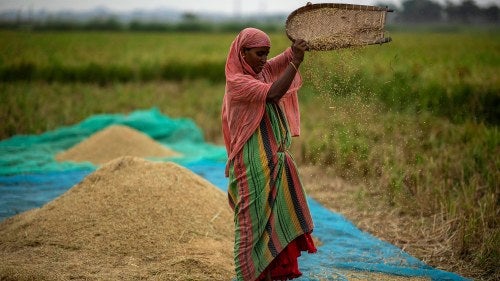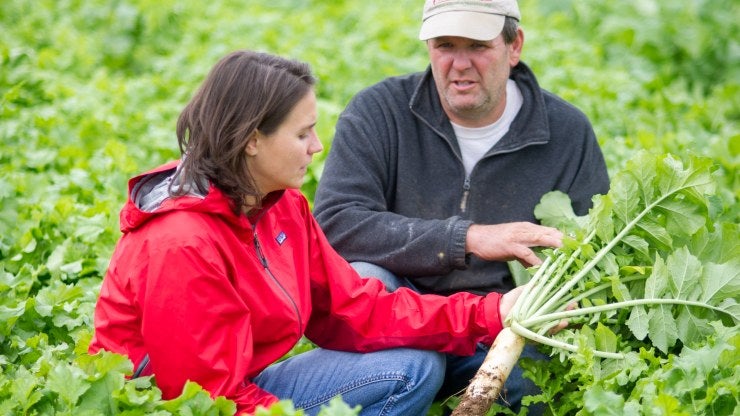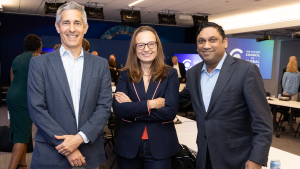Restricting Rice, Radiation Free Food, and the Year of Millets
Check out our roundup of the week's top news and research in food, agriculture, and global development.

Top Story
Sudan’s Civil War is Spiraling
The situation in Sudan is spiraling out of control, reports UN agencies. Farmers are running out of time to plant their crops, while the broader population is suffering from severe food shortages after four months of war. Over one million people have fled Sudan, while over three million people have been internally displaced.
Council Insights
Farmer Adoption of Regenerative Ag
Regenerative agriculture can help our food and agricultural systems become more resilient, argues the Center on Global Food and Agriculture in a new report. Read the report on our website to learn more.

Food and Agriculture
Restricting Rice
India's decision to ban non-basmati white rice and broken rice exports has sparked concerns about rising inflation and potential global food shortages. The move is designed to control rising rice prices for the country’s low-income population, but its ramifications could be felt worldwide.
Heating Up
The United Nations warns that global heating is likely to impact the world's food supply before the 1.5C target, which is sooner than anticipated. Problems of rising temperatures, heatwaves, and more intense droughts are endangering food security in many regions already.
Pollution on the Brain
New research indicates that exposure to air pollution increases susceptibility to dementia. The study suggests that emissions from agriculture and wildfires, in particular, may pose significant risks to cognitive health. The findings emphasize the need for further investigation and monitoring of these emission sources to protect public health.
Deeper Dive
What Are the Global Consequences for India’s Rice Ban?
India is responsible for approximately 40 percent of the global rice trade, and the banned non-basmati white rice and broken rice constitutes almost half of this. The ban serves as the latest blow to the global rice market. Countries most dependent on India's rice exports and the first to feel the effects of the ban include the Philippines, Malaysia, Vietnam, Nigeria, Ivory Coast, and Senegal.
Resilience
Year of Millets
Millet is making a comeback. High in nutritional value and able to grow on arid land, its appeal is growing as climate change creates more frequent and longer lasting droughts. The UN has even named 2023 as the International Year of Millets in recognition of its benefits.
DC Report
Opinion: SNAP Benefits
America has a big hunger problem, but the upcoming Farm Bill can act as a solution. By expanding access to SNAP through the Farm Bill—by increasing benefits per month, for example—it is possible to broaden the benefits of the program and help the 42 million people in the United States who use it.
Big Actors
Radiation Free Food
Twelve years after the Fukushima nuclear plant disaster, Switzerland and Liechtenstein finally lifted import restrictions on food products from ten Japanese prefectures. The countries will no longer require radiation tests on agricultural and fishery products from the prefectures.
Big Ideas
A New Approach
At the UN FAO Summit, the “AfriFOODlinks” project was approved, which aims to strengthen food systems in Africa. The pilot phase targets areas with rapid urbanization that are experiencing effects from climate change, and could ultimately help combat food insecurity.
Ask an Expert
The average age of farmers in the US is continuing to increase, reaching nearly 60 years old. How can we empower the next generation to get more involved in food and agriculture?
"Apart from eliminating obstacles that hinder youth from entering agriculture, it’s important to enlighten them of the extensive and lucrative opportunities present across the entire agricultural value chain. This necessitates the development of innovative agricultural education and awareness strategies that resonate with the youth. Leveraging technology and platforms mostly used by youth, like social media, and tailoring food and agricultural approaches to meet their immediate needs are key.”
—Nonresident Fellow Jones Kanjira


Have a question about food and agriculture? Ask one of our experts at the Center on Global Food and Agriculture to get an answer in next week's Global Food for Thought!
Council Events
Did you miss one of our previous livestreams? Don't worry! They are all available on our website to watch at any time.
Other Upcoming Events
Food Security Trends and Resilience-Building Priorities
Date: September 1
Time: 9:00 – 10:30 a.m. ET
Market Concentration in the Grain Industry: Implications for Food Security?
Date: September 7
Time: 9:30 – 11:00 a.m. ET
Just Roots: Fall Horticulture Workshop Series
Date: September 9
Time: 10:00 – 12:00 p.m. CT
Fifth Annual Bock Food Law and Policy Conference
Date: September 15
Time: 9:00 – 5:00 p.m. CT
iSEE Critical Conversation 2023: Climate-Smart Agricultural Practices and Resilience in the Midwest
Date: September 18
Time: 4:00 – 6:30 p.m. CT
Land Acknowledgement Statement
The Center on Global Food and Agriculture recognizes it occupies the ancestral land of the Kiikaapoi, Peoria, Kaskaskia, Bodwéwadmi, and Myaamia people. Indigenous communities around the world disproportionately experience the pressures of climate change, global conflicts, and the COVID-19 pandemic, while simultaneously stewarding 80 percent of the world’s biodiversity. These Indigenous tribes and nations are the original owners of this land and continue to be systemically erased by policies and practices that ignore their histories. To learn more about Indigenous foodways and practices, check out our 2022 blog series "Stewardship, Sovereignty, and Solutions."
Related Content
- Embracing Dandelions as Food and Medicine
- Going Beyond Regenerative Agriculture on Tribal Lands
- Expanding "638" to Enhance Native American Food Sovereignty
- Flavors and Culture: Food Systems Through Indigenous Women's Eyes
- A Thanksgiving Legacy: Fighting for Indigenous Food Sovereignty
- Native Food Sovereignty: Strengthening Connection to Culture
- Reconnecting to Indigenous Food Sovereignty Values and Practices
- Embracing Interconnectedness: How Indigenous Foodways Can Save Us




